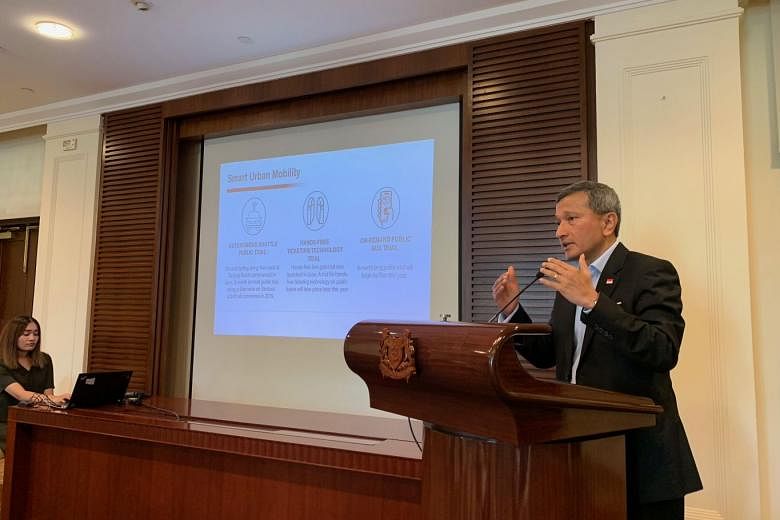Scanning one's fingerprint instead of using passwords is one way of overcoming common mistakes people make that compromise the security of systems.
And in the light of the recent SingHealth cyber attack, having biometric identification does make systems safer, Minister-in-charge of the Smart Nation Initiative Vivian Balakrishnan said yesterday.
He was giving reporters updates on Singapore's five key Smart Nation projects: a national digital identity, an anticipatory e-citizen service called Moments of Life (Families), e-payments, a sensor network and smart urban mobility.
For instance, after launching Moments of Life (Families) in June this year to allow people to register a child's birth and receive the baby bonus in a paperless way, the Government is looking to add new services such as when people face deaths in the family.
There will also be trials for on-demand bus services in December, where commuters can request to be picked up via an app - like how they book a private-hire car.
Summarising why Singapore is rolling out these projects, Dr Balakrishnan said: "We want to live in a society that is gracious, sustainable, secure, safe and cohesive, and one that generates good jobs... (these projects) make sure that Singapore stays competitive and relevant in this brave new world."
A national digital identity underpins the development of a safe and secure society, he said.
SingPass Mobile is a key component of this digital identity, and the app will be rolled out later this month to snuff out unhygienic practices such as the sharing and the use of unsafe passwords.
The app will give access to e-government services by scanning one's fingerprint - a more secure mechanism than passwords, which can be spoofed easily.
According to evidence that emerged during the recent public hearing by the Committee of Inquiry looking into the SingHealth cyber attack, hackers got a foot in the door via successful phishing.
It is a common trap that ensnares many Internet users when they give away confidential data unknowingly. With biometric authentication, spoofing attacks cannot be carried out easily.
Singapore is subject to sophisticated advanced persistent threats, which are stealthy and continuous computer hacking processes to gain intelligence or steal information. "These are not school boys in bedrooms running kiddy scripts," said Dr Balakrishnan.
To ensure security is "baked" into Government systems, it is radically overhauling existing processes, Prime Minister Lee Hsien Loong announced last week.
Specifically, the Government is moving away from allowing individual agencies to build their own e-citizen applications to a more centralised approach that will enable such e-services to be created more efficiently. It will also make a significant migration to cloud technology.


